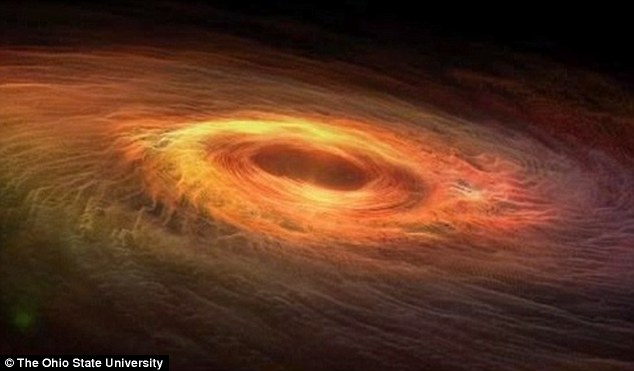Black holes DON’T have a ring of fire, new study suggests: Scientists say they instead may act like a giant ‘fuzzball’
A new study is challenging the idea that black holes are surrounded by ring of fire that incinerates anything in their path, according to Daily Mail.
According to new calculations, black holes may act more like balls of string, meaning they accumulate more and more ‘fuzz’ as objects are pulled in.
The scientists say this means the fuzzy surface would extend to meet the object well before it reaches the hottest part of the black hole.
‘The probability of the electron hitting a photon from the radiation and burning up is negligible, dropping even further if one considers larger black holes known to exist in space,’ said Samir Mathur, a professor of physics.
‘What we’ve shown in this new study is a flaw in the firewall argument,’ Mathur said.
In the study, the researchers from Ohio State University calculated what would happen if an electron fell into a black hole with a mass as big as the sun.
The numbers, according to the team, discount the firewall theory, which argues that the ring of fire would incinerate anything before it hits the surface.
‘The question is “Where does the black hole grab you?”’ Mathur said.
‘We think that as a person approaches the horizon, the fuzzball surface grows to meet it before it has a chance to reach the hottest part of the radiation, and this is a crucial finding in this new physics paper that invalidates the firewall argument.’
According to the researcher, the reality may be far more complex than the firewall theory accounted for.
‘Once a person falling into the black hole is tangled up in strings, there’s no easy way to decide what he will feel,’ Mathur says.
‘The firewall argument had seemed like a quick way to prove that something falling through the horizon burns up.
‘But we now see that there cannot be any such quick argument; what happens can only be decided by detailed calculations in string theory.’
N.H.Kh

